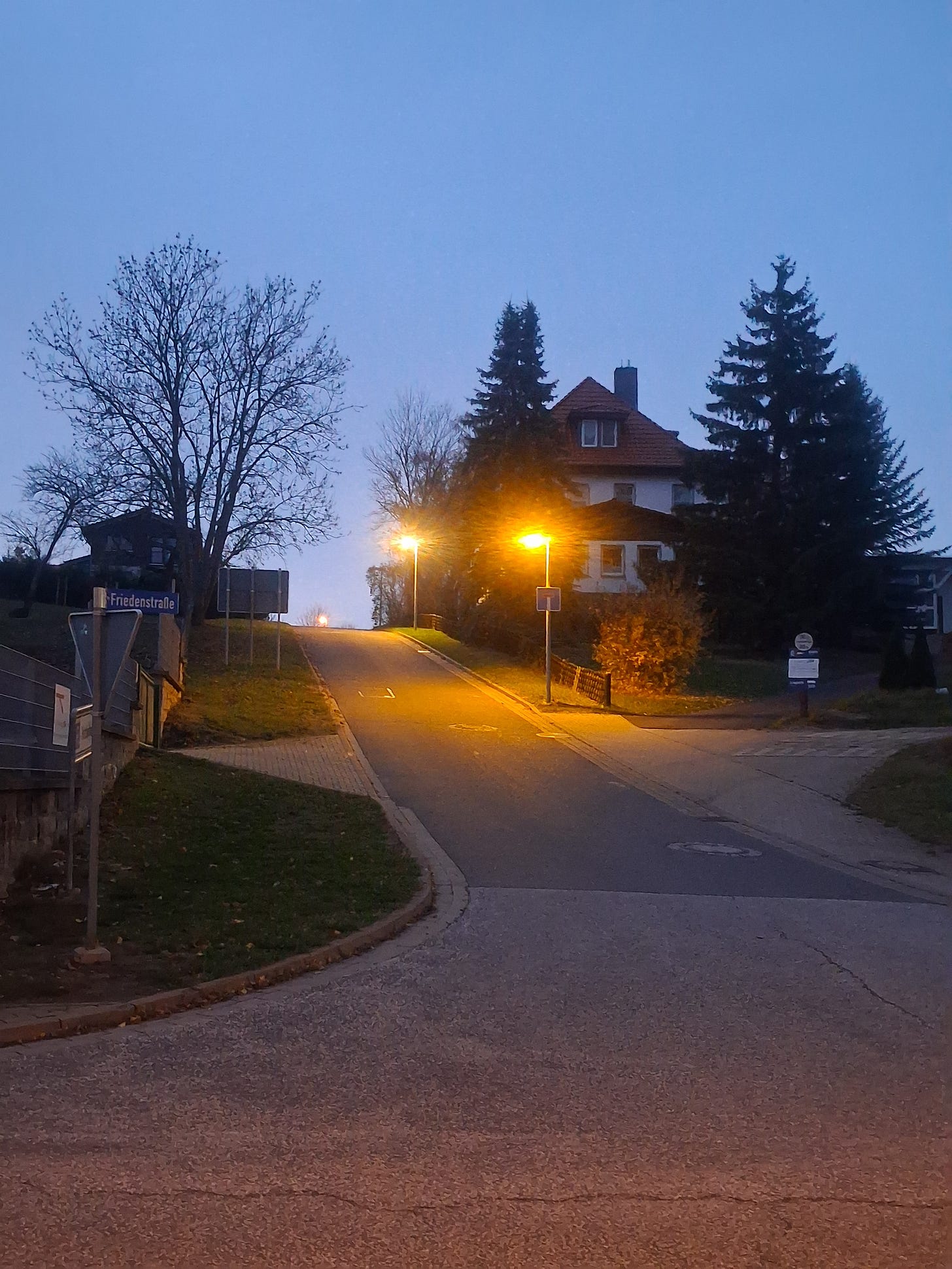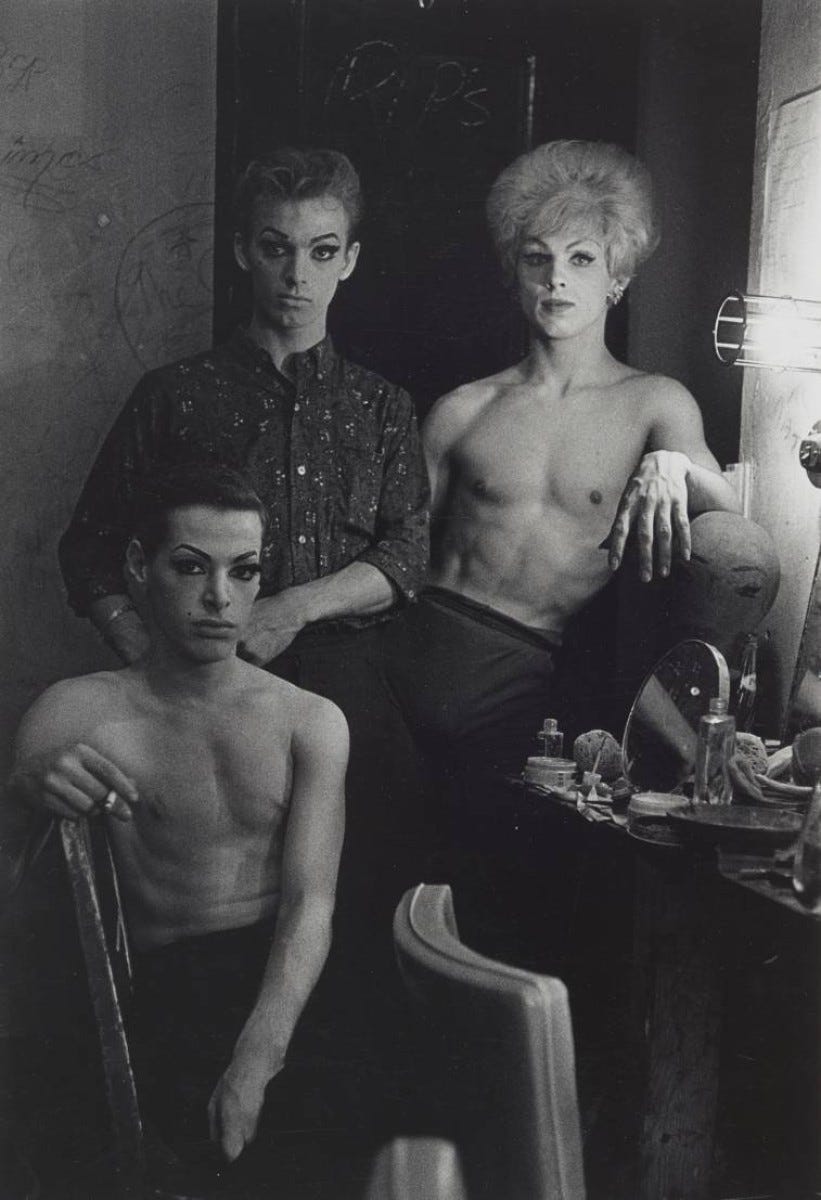I almost hate to contribute to the ICE discourse, because it doesn’t seem like there needs to be discourse. ICE is blatantly evil. That should be enough.
First, there’s the gravity of the moment. I’d like to write cool, dreamy analysis about art and landscape. That makes me happier than writing twitchy current-events prose. But fuck, the moment is pulling me in. Load a John Dos Passos newsreel, let’s go baybee.
Renee Good was murdered on the south side of Minneapolis, on the corner of 34th and Portland, just a few blocks over from 38th and Chicago, where George Floyd was murdered. Contrary to what you may see on the right-wing news, this part of Minneapolis isn’t a violent inner-city slum in which the only law is the law of the jungle while liberal politicians helplessly flail, and contrary to what you may see on lefty social media, it isn’t a quilombo of BIPOC resistance either. It’s a neighborhood like many others, remarkably diverse, with significant white, black, and Latino populations, largely working class, but with a fair number of comfortably middle-class homeowners as well. Sure, it’s a little worse for wear, but the area has a fine and well-preserved stock of Victorian and Edwardian homes, lovely little parks and lakes, and an abundance of independent merchants serving the local community, hippie cafes and hopelessly unprofitable record shops next to Ecuadorian butchers and Ethiopian salons.
And, once upon a time, it was the neighborhood I called home.
So fuck it, I don’t want to spend too much time in this shitty, shitty moment. Let’s get cool and dreamy about art and landscape. The landscape that has, much to my shock, set much of the political tenor of the past decade.
It was one of those living arrangements that one can only have when young and free. My roommate was several years older, a graduate from the same college spinning his wheels between political campaign work, hosting tables at the Bennigan’s out by the airport, and supposedly writing a book about Deep Space Nine. We had three cats. Our neighbors an agoraphobic lesbian across the hall, and a rotund middle-aged woman who drove an Escalade with a leopard-print steering wheel cover below. Wealthier neighborhoods were just on the other side of Blaisdell Avenue. On one side of the street was a minimalist Stella Artois billboard. On the other side was a Modelo billboard in Spanish with fake-titty Mexican telenovela blondes in crop tops. The local branch of the sureños kept tagging the building, only to be painted over by the landlord. Their little arms race. I looked up our local gang. They had a Myspace.
I barely worked, because I really didn’t need to pay for much more than my rent, and had a bit of cash saved up that I could burn through. What little I owned could fit in a ’95 Camry. I scrounged a mattress from an alley – don’t judge me – and who needs a bedframe when you’re 20? We didn’t have internet, although we could sometimes get onto our neighbors’ wi-fi networks. We skinny dipped in Lake Nokomis. We drank Pabst and Evan Williams bourbon and smoked rose-flavored hookah and listened to Justice and Glass Candy on our second-floor porch – a Minneapolis specialty, ideal for cool Northern summer evenings. We got yelled at by the tweakers in the building next door who threatened to call the cops on us, and we yelled back that they wouldn’t call the cops because they were tweaker trash. Apologies were made in the morning, and we’d put on Joni Mitchell’s Blue and spark a joint and sweep the floors and empty the ashtrays from the night before.
And then, my roommate left, packed up his things, leaving me with an apartment empty, save for a mattress, a sofa, and a floor lamp. With no work, nothing to do, I spent my days reading library books, as well as the countless used books I’d brought, stacked up on the floor, next to my mattress. The sunlight came in over the wooden floors in the afternoon as hookers smoked in the parking lot. I got an awful sunburn tubing on the Apple River, and I ripped a postcard-sized bit of dead skin from my back, and I couldn’t believe how beautifully it caught the light. I would walk everywhere. Maybe down Minnehaha, past the old grain elevators painted with the verdant fields of the hinterlands, a little bit WPA, a little bit Stalin. Or maybe just over to the bodega above the basement mosque. Maybe I’d buy something, maybe not. I lost a good 30 pounds that summer, and when I returned to college for my senior year, I was, for the first time, considered “hot” by some.
And other than a few visits, that was it for me and Minneapolis.
And yet Minneapolis followed me.
The din of Cedar Avenue after late-night punk rock shows and quiz nights with cheap pints of Summit Extra Pale ended in the Somalian delis, eating spicy as hell falafels, long before anyone started talking about daycare fraud.
Stopping for gas in Brooklyn Park, before that suburb’s representative, Melissa Hortman, at that time minority leader in the Minnesota Statehouse, and later speaker, a competent, well-meaning technocrat if ever there was one with a strong sense of a social mission in her good Catholic heart, was murdered by a Christian nationalist with Mittyish operator fantasies as delineated in his wildly exaggerated CV, an estranged family, and a laundry list of grievances against imagined enemies.
And that bodega with the basement masjid I mentioned earlier? A feckless George Floyd tried to pass counterfeit bills there only to be shot down by Derek Chauvin. The city burned, on the precise streets where I’d once read Antonio Negri and Michael Hardt’s “Empire.” And in the aftermath, any serious calls for racial justice quickly devolved into hollow rhetoric, faux-radical stances being adopted by the professional classes with a complete lack of skin in the game, consultants being called in to convince consumers that Unilever actually cared about anyone, mewling performing arts collectives trying to “decolonize” their abstruse set pieces, Black Lives Matter transformed into a floating signifier, actual black Americans as poor and fucked over as ever, police budgets still proudly high, complete with a new stock of Halo Warthogs to prepare for the Fallujahfication of American cities.
Until that fateful day last week where a mother of three got merc’d by a fat fuck in tactical gear as she tried to make a three-point turn in the middle of Portland Avenue while ICE goons went about their usual business of harassing random people of color.
But even when I lived there, there were signs. That August, the I-35W bridge collapsed into the Mississippi River at the peak of rush hour, the first sign that America’s proud mid-century Keynesian infrastructure was reaching the end of its natural life, with no one willing to foot the bill to replace it.
And the past nearly two decades play back, quickly, in reverse, until I’m in the Minneapolis summer, riding my bike through the summer night to the house party in Como, and the horizon still seems endless, the midsummer sun dipping behind the lake.









